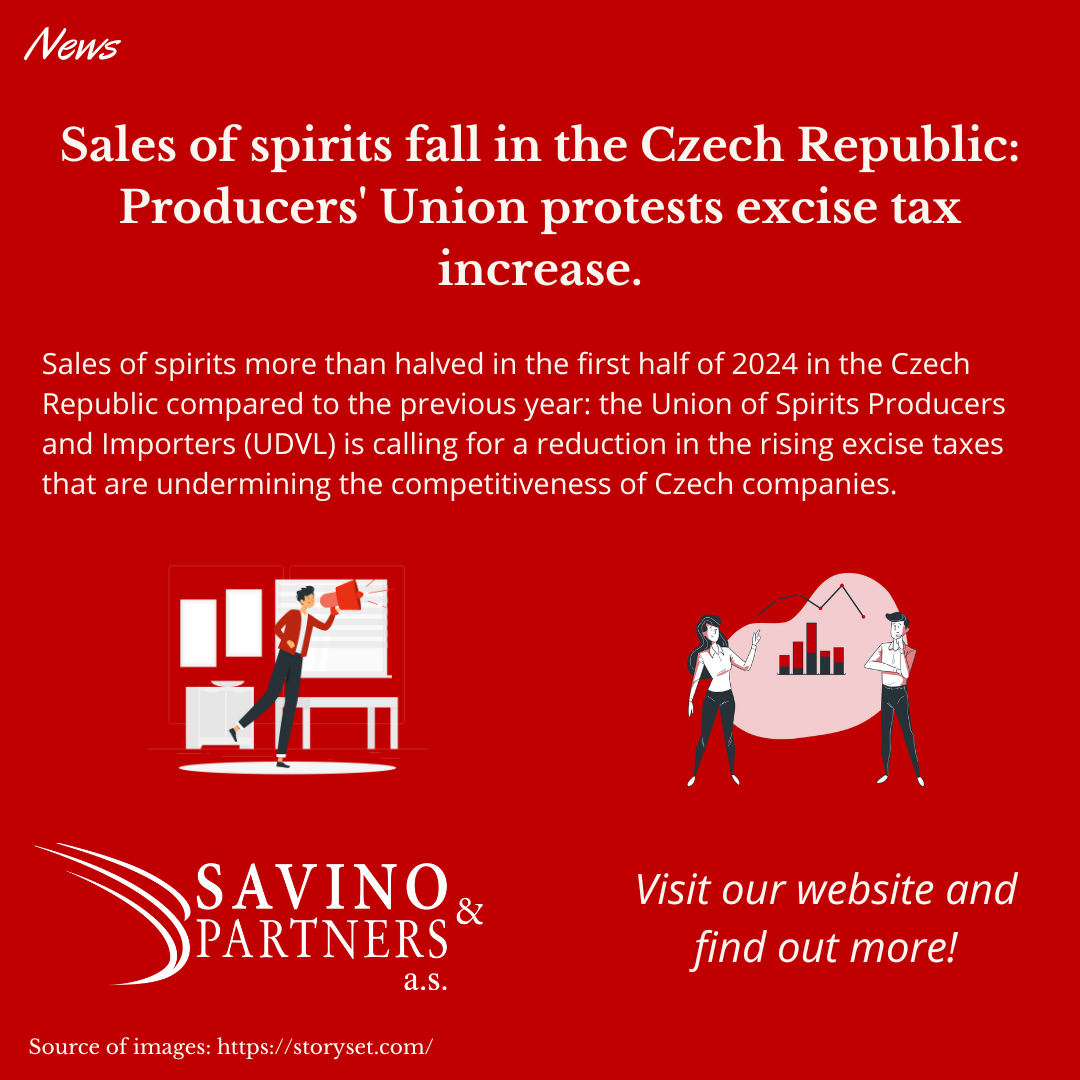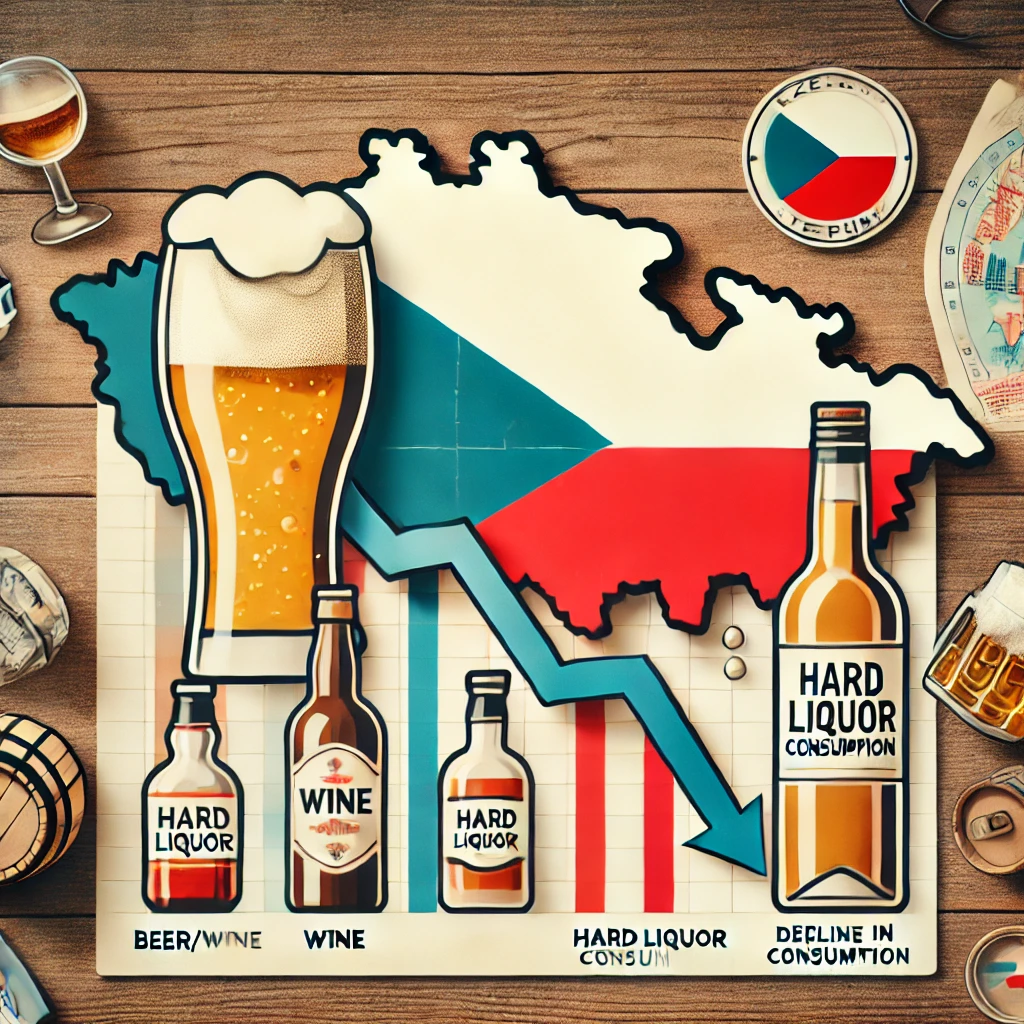
According to data reported by the Union of Producers and Importers of Spirits (UVDL), in the first half of 2024, spirits sales in the Czech Republic fell by 51.3% compared to the corresponding period of the previous year. The Union (UVDL) asks the government to cancel further increases in excise duty on spirits planned for 2025 and 2026.

Supporting its request, the Union also argues that the previous excise duty increase did not generate an increase in state revenues: according to UVDL, in the first half of the year, the Czech government collected the same amount of excise duty as in 2023. Representatives of producers and importers of spirits claim that the government was able to enjoy excise duty collection from the so-called frontloading in January and February 2024, but from March to June, the collection was already -54% compared to the previous year.
The Czech government’s willingness to increase excise duties could undermine even more intensively the already existing decline in the consumption of spirits in the Czech Republic.
According to Union data, indeed, Czech producers and importers of spirits pay annually more than 12 billion crowns to the state budget, 9 billion of which are consumption taxes. Statistics show the disadvantage of spirits producers in comparison to beer producers: liquor accounts for only 28% of the total alcohol consumption, but the excise taxes that liquor producers pay to the state correspond to 63% of the total excise taxes on alcohol; in the Czech Republic, 48% of the total alcohol consumption is beer consumption, and yet beer producers pay only 31% of the total consumption tax.
According to the Union, the reduction in the sales of spirits does not necessarily correspond to a reduction in alcohol consumption in the Czech Republic: a growing portion of consumers has been shifting to other categories of alcoholic beverages, especially alcohol on which no excise duty is imposed, without considering the threat of the expansion of the black market.
Over the past 30 years, the Union of Producers and Importers of Spirits (UVDL) has observed a 15% decrease in the consumption of its products in the Czech Republic in favour of a 41% increase in wine consumption, while beer consumption has remained more or less stable. The decline in spirits consumption is mainly due to the sharp increase in retail prices and the preference of Czech consumers to buy spirits abroad.
According to current forecasts, excise duties on spirits will continue to rise until 2026, with a 10% increase already recorded this year. In the Czech Republic, sparkling wine is subject to a tax of 23.40 crowns per litre, in contrast to other alcoholic beverages, such as beer and spirits, which are taxed significantly higher, up to several hundred crowns per litre of pure alcohol. So far, the possibility of taxing still wine has been discussed several times, but has always met the opposition from local winegrowers, hence it has not yet been introduced.
Companies shall wait to see whether the Union of Producers and Importers of Spirits (UVDL) will succeed in stopping the increase in excise duty on spirits planned for the coming years. These increases could have significant repercussions on the spirits industry in the Czech Republic, which is already suffering from the current drop in sales. The government’s response will be crucial in determining the future of this industry and its ability to compete with other, less-taxed categories of alcoholic beverages, as well as other European countries.
Image generated by AI.
Visuals: www.storyset.com





